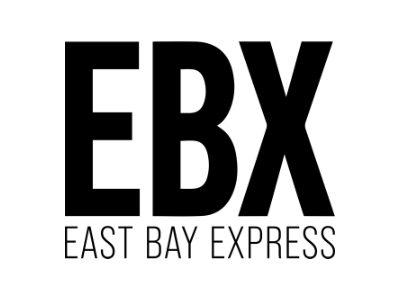Pride Month is a time for parades, rainbows, education and celebration. But in June and the rest of the year, people in the LGBTQIA+ community deal with the boring but necessary life admin of scheduling doctor’s appointments and making sure there’s money in the bank.
Natalie Le, a financial advisor at Northwestern Mutual, and Dr. Suselina Acosta-Goldstein, a psychiatrist at Washington Health, shared how people in the LBGTQIA+ community often deal with added stress around these already anxiety-provoking areas.
“Financial anxiety right now is at a high—for everyone across the nation,” Le said. She shared a Northwestern Mutual’s 2025 Planning and Progress Study stating nearly 7 in 10 Americans say financial uncertainty has made them depressed and anxious.
Fears around a recession, rising prices due to tariffs—there’s a lot to worry Americans. Le said, “It’s my job as an advisor to be up to date with what’s happening in the world with any legislation changes so I can best navigate those conversations with my clients.”
Some issues are straightforward. Both women brought up family planning as an area that’s more complicated for members of the LGBTQIA+ community, whether it’s getting health insurance to cover fertility treatments, or navigating a system that still defaults to straight couples.
However, an individual’s situation is often more nuanced. Le said her clients often face a mix of “legal factors, cultural factors, family dynamics.” Fracturing of family or community ties, past trauma or abuse, less higher education, poverty, lower wages—these can all affect any group. However, LGBTQIA+ people face added discrimination. Everyone’s story is different, and there’s no single culprit to point to, only that belonging to a vulnerable population can complicate many different areas of life.
Whether with a healthcare provider or a financial advisor, a positive dynamic is vital. Le said, “Conversations around money are as difficult as they are already. We always want to make sure we’re creating a safe space so we’re not having to feel worried or judged.”
Acosta-Goldstein expanded by noting that it’s counterproductive to “come in being protective of yourself in a space where you’re supposed to be safe.” People can hold back from sharing key parts of their lives, like discussing their relationship without disclosing they’re polyamorous. Or they simply opt to not come to the doctor’s office at all.
While discussing safety, it’s important not to dismiss concerns as mere “anxiety.” While many providers feel neutral to “the other” or resolve to put their feelings aside in a professional setting, prejudice is real and strong enough to defy the workplace rulebook. It’s reasonable for people to be aware that they may face discrimination.
Even when providers have good intentions, they may lack training that goes beyond the straight/cisgender norm. In this case, Acosta-Goldstein said, “Now their patients have the burden of educating those physicians. And those are the physicians that are willing to listen or at least take the time, who aren’t just doing 10-minute visits.”
Both Le and Acosta-Goldstein are women in relationships with other women, which gives them a chance to establish an open dynamic. Le said, “If I’m open about my own life and my fiancée—she’s a woman—and I know that as long as I can share those parts of myself that allows people to say, ‘OK, well she’s going to share this about her …’—if they align with that, great.”
However, that’s just a starting point. Acosta-Goldstein pointed out, “Just because we’re all under the same LGBTQ+ umbrella, I’m not an expert on anyone else. I’m going to ask that person, if they come into my office, their experience. Use their terms. Use their language. And go in thinking this person knows more about themself than me. That’s an absolute truth! They know more about themself than you ever will.”
Both women emphasized an attitude of openness—something anyone can cultivate across communities. “We’re all learning,” Le said. “Having an awareness is huge.” Acosta-Goldstein added, “For providers my advice is always: ‘Be curious and be humble.’”
By contrast, corporate training in sensitivity can often have a “For Group A, do B; for Group C, remember D” format, which can unintentionally turn communities into monoliths and reinforce stereotypes.
Acosta-Goldstein said, “There are thoughts and opinions and ideas that are the norm that are kind of automatic in all of us. No matter if we’re straight or LGBTQ+ or trans or cis or whatever, we’re all socialized together and there’s these biases that we have that most people don’t challenge or check. When you’re an ‘other,’ you do.”
No matter what field of work or community someone belongs to, asking for help or giving help comes with vulnerability. There’s no secret code to create perfect safety and flawless understanding. There’s only willingness to approach with empathy. As Acosta-Goldstein said: “This patient, you’re not going to be able to google them and figure them out. You’ve got to ask them.”


